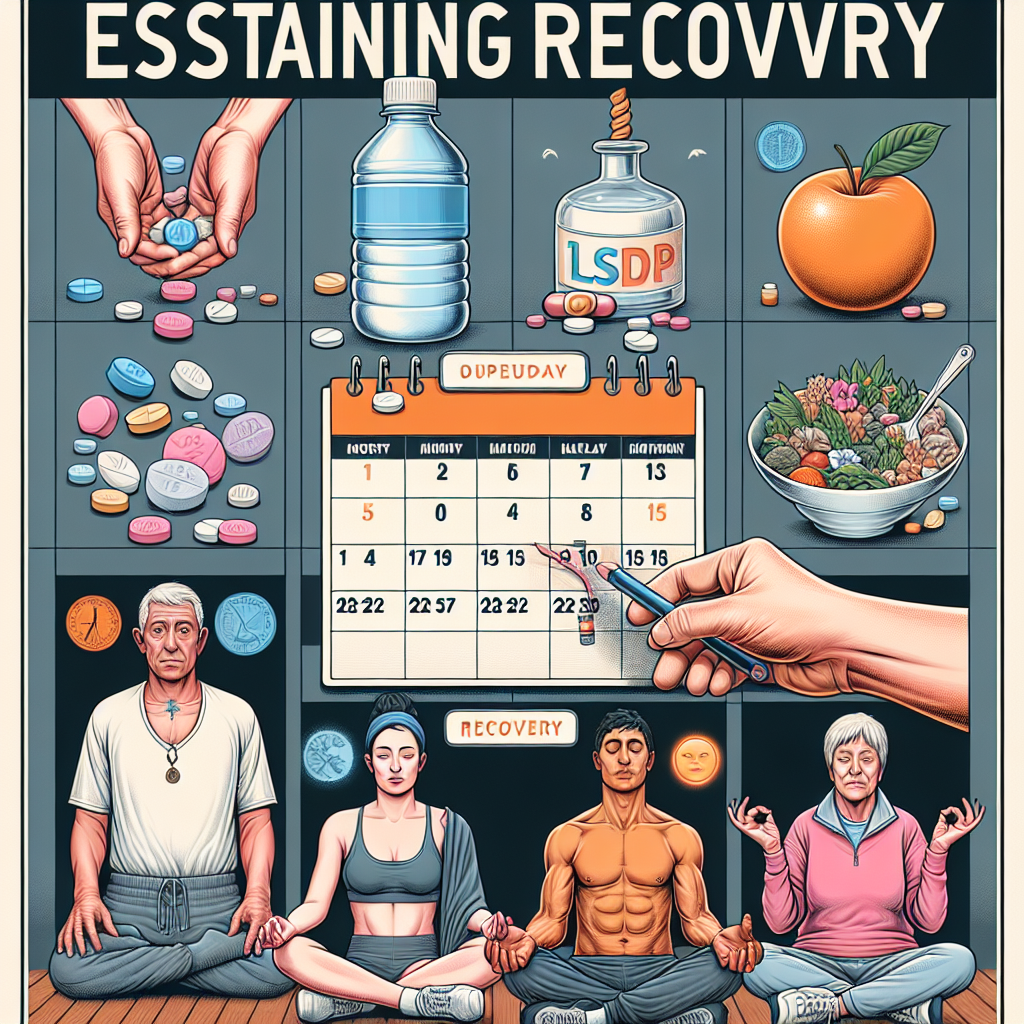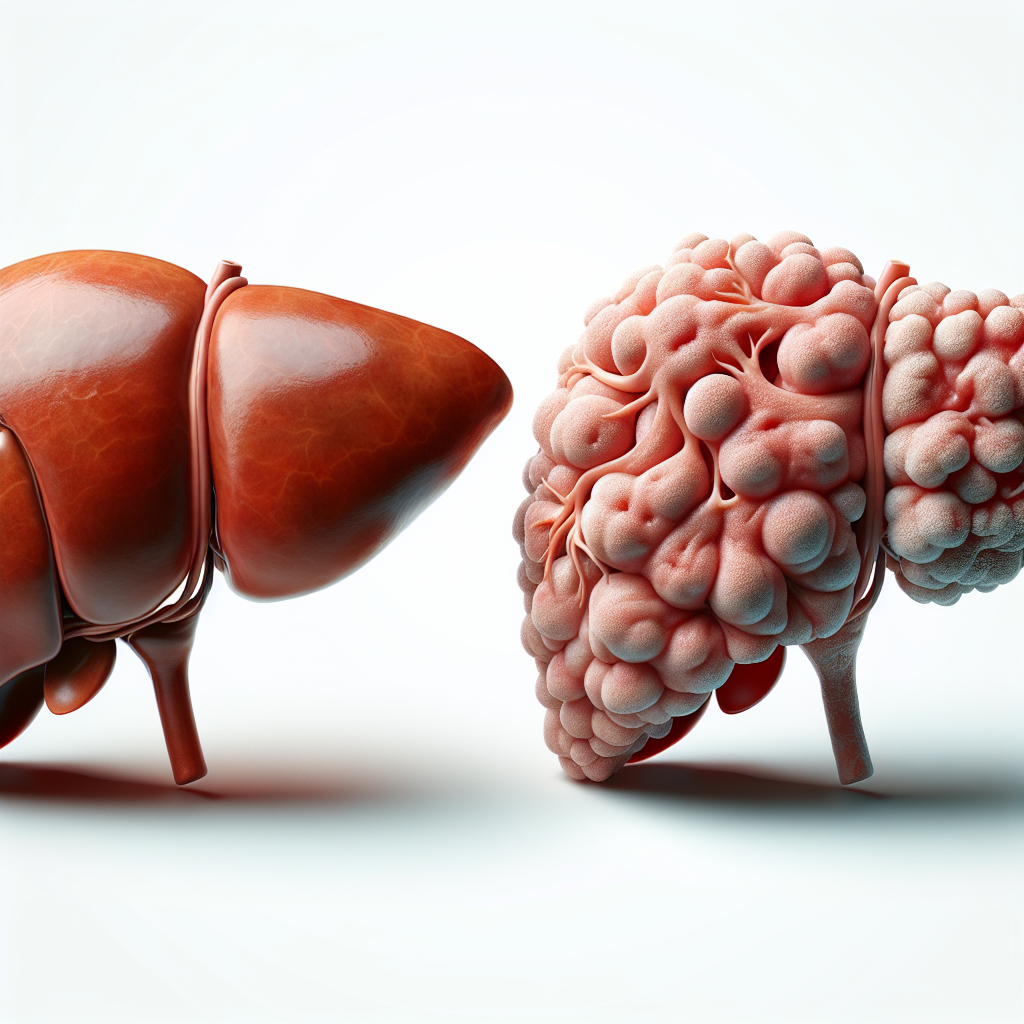Table of Contents
“Empower Your Journey: Healthy Habits for Lasting LSD Recovery”
Introduction

Recovering from LSD addiction is a challenging journey that requires a comprehensive approach to ensure long-term success. Healthy habits play a crucial role in sustaining recovery, providing the physical, mental, and emotional support necessary to overcome addiction. These habits include maintaining a balanced diet, engaging in regular physical activity, practicing mindfulness and stress management techniques, fostering supportive relationships, and seeking ongoing professional help. By integrating these practices into daily life, individuals can build a strong foundation for lasting recovery and overall well-being.
Nutrition And Hydration: Key Components For Recovery
Nutrition and hydration play pivotal roles in the journey of recovery from LSD addiction, serving as foundational elements that support both physical and mental well-being. As individuals embark on the path to healing, it becomes essential to understand how proper nutrition and adequate hydration can significantly enhance the recovery process. By focusing on these key components, one can foster a healthier lifestyle that not only aids in overcoming addiction but also promotes long-term wellness.
Firstly, it is important to recognize that the body undergoes significant stress during addiction and the subsequent withdrawal period. LSD, while not physically addictive, can lead to psychological dependence, which in turn can cause neglect of basic self-care practices, including proper eating and drinking habits. Therefore, re-establishing a balanced diet is crucial. Consuming a variety of nutrient-dense foods helps to replenish the body’s depleted resources. Incorporating fruits, vegetables, whole grains, lean proteins, and healthy fats into daily meals can provide the essential vitamins and minerals needed to repair and rejuvenate the body.
Moreover, certain nutrients have been shown to support brain health, which is particularly beneficial for those recovering from the psychological effects of LSD. Omega-3 fatty acids, found in fish, flaxseeds, and walnuts, are known to improve cognitive function and reduce inflammation. Antioxidant-rich foods, such as berries, dark chocolate, and green leafy vegetables, can help combat oxidative stress and promote mental clarity. Additionally, complex carbohydrates like oats and brown rice can stabilize blood sugar levels, thereby reducing mood swings and enhancing emotional stability.
Hydration is another critical aspect of recovery that should not be overlooked. Water is essential for nearly every bodily function, including detoxification processes that help eliminate residual toxins from the system. Staying well-hydrated can improve energy levels, support digestion, and enhance overall physical performance. It is recommended to drink at least eight glasses of water a day, though individual needs may vary based on factors such as activity level and climate. Herbal teas and natural fruit-infused waters can also be excellent alternatives to plain water, providing both hydration and additional health benefits.
In addition to the physical advantages, proper nutrition and hydration can have profound psychological benefits. A well-nourished body is better equipped to handle stress and anxiety, common challenges faced during recovery. Eating regular, balanced meals can help regulate mood and reduce the likelihood of relapse by minimizing cravings and promoting a sense of well-being. Furthermore, the act of preparing and consuming healthy meals can serve as a form of self-care, reinforcing positive habits and fostering a sense of accomplishment.
It is also worth noting that recovery is a holistic process that involves more than just physical health. Emotional and social support systems are equally important. Engaging in activities that promote mental health, such as mindfulness meditation, yoga, and therapy, can complement the benefits of good nutrition and hydration. Building a supportive network of friends, family, and healthcare professionals can provide the encouragement and accountability needed to maintain these healthy habits.
In conclusion, prioritizing nutrition and hydration is a vital strategy for sustaining recovery from LSD addiction. By nourishing the body with wholesome foods and staying adequately hydrated, individuals can enhance their physical health, support brain function, and improve emotional well-being. These practices, combined with a comprehensive approach to mental health and social support, can pave the way for a successful and enduring recovery journey.
The Role Of Exercise In Maintaining Sobriety
Exercise plays a pivotal role in maintaining sobriety for individuals recovering from LSD addiction. As one embarks on the journey of recovery, the body and mind undergo significant changes, and incorporating physical activity can be a powerful tool in navigating these transformations. The benefits of exercise extend beyond physical health, offering profound psychological and emotional advantages that are crucial for sustaining long-term sobriety.
Firstly, engaging in regular physical activity helps to restore the body’s natural balance, which is often disrupted by substance abuse. LSD, like many other drugs, can wreak havoc on the body’s systems, leading to a range of health issues. Exercise promotes cardiovascular health, strengthens muscles, and enhances overall physical fitness, which can help to counteract the damage caused by prolonged drug use. Moreover, the endorphins released during exercise act as natural painkillers and mood elevators, providing a healthy alternative to the artificial highs once sought through LSD.
In addition to the physical benefits, exercise plays a significant role in mental health, which is a critical component of recovery. The journey to sobriety is often fraught with emotional challenges, including anxiety, depression, and stress. Regular physical activity has been shown to reduce symptoms of these conditions, offering a natural and effective way to manage mental health. The act of exercising can serve as a form of meditation, allowing individuals to clear their minds and focus on the present moment. This mindfulness can be particularly beneficial for those in recovery, helping to reduce cravings and prevent relapse.
Furthermore, exercise can help to establish a sense of routine and structure, which is essential for individuals recovering from addiction. The chaotic lifestyle often associated with substance abuse can leave individuals feeling lost and without direction. By incorporating regular physical activity into their daily lives, individuals can create a sense of normalcy and stability. This routine can provide a foundation upon which other healthy habits can be built, such as proper nutrition and adequate sleep, both of which are vital for maintaining sobriety.
Another important aspect of exercise in recovery is the social component. Many forms of physical activity, such as team sports or group fitness classes, offer opportunities for social interaction and support. Building a network of supportive, like-minded individuals can be incredibly beneficial for those in recovery. These connections can provide encouragement, accountability, and a sense of community, all of which are important for sustaining long-term sobriety. Additionally, participating in group activities can help to combat the isolation that many individuals in recovery experience, fostering a sense of belonging and purpose.
It is also worth noting that exercise can serve as a positive coping mechanism, replacing the negative behaviors associated with addiction. When faced with triggers or stressful situations, individuals in recovery can turn to physical activity as a healthy outlet for their emotions. This shift in behavior can help to break the cycle of addiction and reinforce the commitment to sobriety.
In conclusion, the role of exercise in maintaining sobriety for individuals recovering from LSD addiction cannot be overstated. The physical, mental, and social benefits of regular physical activity provide a comprehensive approach to recovery, addressing the multifaceted challenges that individuals face. By incorporating exercise into their daily lives, individuals can build a strong foundation for long-term sobriety, fostering a healthier, more fulfilling future.
Mindfulness And Meditation Techniques For Long-Term Recovery
Mindfulness and meditation techniques can play a pivotal role in sustaining long-term recovery from LSD addiction. These practices offer a holistic approach to healing, addressing not only the physical aspects of addiction but also the mental and emotional challenges that accompany the journey to sobriety. By incorporating mindfulness and meditation into daily routines, individuals can cultivate a sense of inner peace, resilience, and self-awareness, which are essential for maintaining recovery.
To begin with, mindfulness is the practice of being fully present in the moment, without judgment. This heightened state of awareness can help individuals in recovery to recognize and manage triggers that may lead to relapse. For instance, when a person becomes mindful of their thoughts and emotions, they can identify patterns that might signal a craving or a negative thought spiral. By acknowledging these feelings without judgment, they can take proactive steps to address them, such as engaging in a healthy activity or reaching out for support.
Moreover, meditation serves as a powerful tool to enhance mindfulness. Through regular meditation practice, individuals can train their minds to focus and remain calm, even in stressful situations. Techniques such as deep breathing, guided imagery, and body scans can help to reduce anxiety and promote relaxation. This is particularly beneficial for those recovering from LSD addiction, as it can counteract the psychological effects of the drug, such as anxiety and paranoia. By creating a sense of inner calm, meditation can help individuals to navigate the ups and downs of recovery with greater ease.
In addition to reducing stress, mindfulness and meditation can also improve emotional regulation. Many people who struggle with addiction have difficulty managing their emotions, which can lead to impulsive behaviors and relapse. By practicing mindfulness, individuals can learn to observe their emotions without becoming overwhelmed by them. This allows them to respond to challenging situations in a more thoughtful and measured way, rather than reacting impulsively. Over time, this can lead to greater emotional stability and a stronger sense of self-control.
Furthermore, mindfulness and meditation can foster a deeper connection to oneself and others. Addiction often leads to feelings of isolation and disconnection, but these practices can help to rebuild a sense of community and belonging. By cultivating compassion and empathy through mindfulness, individuals can improve their relationships with loved ones and build a supportive network that is crucial for long-term recovery. Additionally, group meditation sessions or mindfulness-based support groups can provide a sense of camaraderie and shared purpose, reinforcing the commitment to sobriety.
It is also important to note that mindfulness and meditation are accessible and adaptable practices. They do not require any special equipment or extensive training, making them easy to incorporate into daily life. Whether it’s a few minutes of deep breathing in the morning, a guided meditation before bed, or a mindful walk in nature, these practices can be tailored to fit individual needs and preferences. This flexibility ensures that mindfulness and meditation can be a sustainable part of a long-term recovery plan.
In conclusion, mindfulness and meditation techniques offer invaluable benefits for those recovering from LSD addiction. By promoting self-awareness, emotional regulation, stress reduction, and a sense of connection, these practices can support individuals in maintaining their sobriety and building a fulfilling, drug-free life. Embracing mindfulness and meditation as part of a comprehensive recovery strategy can empower individuals to overcome the challenges of addiction and achieve lasting well-being.
Building A Support Network: Friends, Family, And Support Groups
Building a support network is a crucial step in sustaining recovery from LSD addiction. Friends, family, and support groups can provide the emotional and practical assistance necessary to navigate the challenges of recovery. Establishing a strong support system can make a significant difference in maintaining sobriety and fostering a sense of belonging and purpose.
To begin with, friends play an essential role in the recovery process. Surrounding oneself with positive, understanding, and supportive friends can create an environment conducive to healing. These friends can offer encouragement, celebrate milestones, and provide a listening ear during difficult times. It is important to choose friends who respect the journey of recovery and avoid those who may inadvertently trigger a relapse. By fostering healthy friendships, individuals in recovery can build a network of allies who genuinely care about their well-being.
In addition to friends, family members are often a cornerstone of a support network. Family can offer unconditional love and support, which is invaluable during the recovery process. Open communication with family members about the struggles and triumphs of recovery can strengthen these bonds. Family therapy sessions can also be beneficial, as they provide a safe space to address any underlying issues and improve family dynamics. By involving family in the recovery journey, individuals can create a solid foundation of support that extends beyond the immediate circle of friends.
Moreover, support groups are an indispensable resource for those recovering from LSD addiction. These groups provide a sense of community and understanding that can be difficult to find elsewhere. Sharing experiences with others who have faced similar challenges can be incredibly validating and empowering. Support groups, such as Narcotics Anonymous (NA) or other specialized groups for hallucinogen addiction, offer a structured environment where individuals can learn coping strategies, gain insights, and receive encouragement from peers. The collective wisdom and shared experiences within these groups can be a powerful motivator for maintaining sobriety.
Transitioning from the initial stages of recovery to long-term sobriety requires ongoing effort and commitment. A robust support network can help individuals stay accountable and motivated. Regular check-ins with friends, family, and support group members can provide a sense of continuity and stability. These interactions can serve as reminders of the progress made and the goals yet to be achieved. Additionally, participating in social activities that do not involve substance use can help individuals rediscover joy and fulfillment in sober living.
Furthermore, it is essential to recognize that building a support network is a dynamic process. Relationships may evolve, and new connections may be formed as individuals grow in their recovery journey. Being open to new friendships and support group opportunities can enrich the support network and provide fresh perspectives. It is also important to set boundaries and communicate needs clearly to ensure that the support received is constructive and aligned with recovery goals.
In conclusion, friends, family, and support groups are integral components of a support network that can sustain recovery from LSD addiction. By fostering positive relationships, engaging in open communication, and participating in supportive communities, individuals can create a strong foundation for long-term sobriety. The journey of recovery is not one that needs to be traveled alone; with the right support network, it becomes a shared path of growth, healing, and renewed hope.
Q&A
1. **Question:** What is a crucial dietary habit for sustaining recovery from LSD addiction?
**Answer:** Maintaining a balanced diet rich in fruits, vegetables, lean proteins, and whole grains to support overall physical and mental health.
2. **Question:** How important is sleep in the recovery process from LSD addiction?
**Answer:** Establishing a regular sleep schedule and ensuring adequate rest is vital for cognitive function and emotional stability during recovery.
3. **Question:** What role does physical exercise play in sustaining recovery from LSD addiction?
**Answer:** Regular physical exercise helps reduce stress, improve mood, and enhance overall well-being, which are essential for maintaining sobriety.
4. **Question:** Why is it important to engage in therapy or support groups during recovery from LSD addiction?
**Answer:** Participating in therapy or support groups provides emotional support, coping strategies, and a sense of community, which are crucial for long-term recovery.
Conclusion
Healthy habits for sustaining recovery from LSD addiction include maintaining a balanced diet, engaging in regular physical exercise, practicing mindfulness and stress-reduction techniques such as meditation or yoga, establishing a consistent sleep schedule, seeking ongoing therapy or counseling, participating in support groups, avoiding triggers and high-risk situations, and fostering healthy relationships. These habits collectively contribute to physical, mental, and emotional well-being, which are crucial for long-term recovery and preventing relapse.



